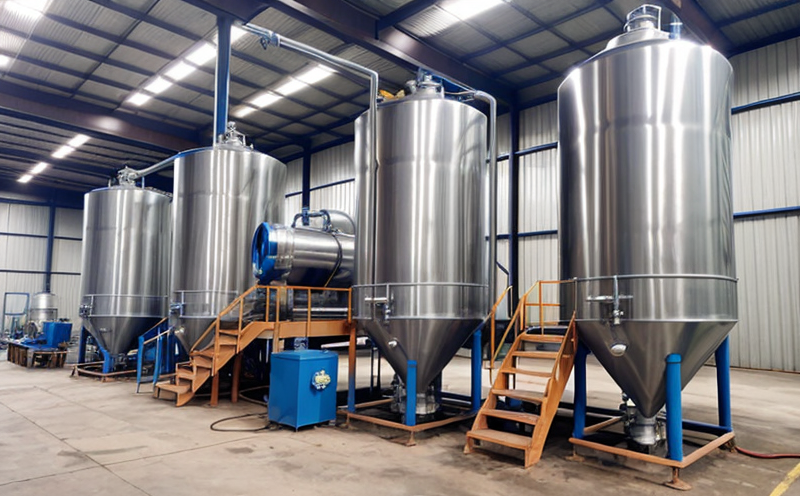Industrial filter system inspection
The industrial filter system plays a critical role in maintaining air quality and ensuring operational safety within various sectors such as manufacturing, energy production, and healthcare. Regular inspections of these systems are essential to ensure they function efficiently and meet regulatory standards.
Our team specializes in conducting comprehensive inspections of industrial filters using state-of-the-art equipment. These inspections include a thorough examination of filter integrity, efficiency, and overall performance. Our services cater to the needs of quality managers, compliance officers, R&D engineers, and procurement teams who require reliable data for decision-making.
During an inspection, we use advanced testing methods that comply with international standards such as ISO 9001:2015 for quality management systems. Compliance is a cornerstone in our approach to inspections, ensuring that all procedures adhere to the latest regulatory guidelines.
The process begins with a visual assessment of the filter housing and media. This step helps identify any visible signs of wear or damage. Following this, we perform pressure drop testing to measure resistance to airflow, which is crucial for determining the health of the filter. We also conduct particle counting tests to assess the cleanliness level inside the system.
Temperature and humidity sensors are used to monitor environmental conditions that can affect filter performance. Additionally, we employ laser scanning technology to capture detailed images of the filter's internal structure, allowing us to detect minute defects that might not be apparent through other means.
The findings from these tests are meticulously documented in a comprehensive report tailored for our clients' requirements. This document includes recommendations for necessary repairs or replacements based on our assessment. By providing this level of detail, we empower decision-makers with actionable insights to optimize their equipment performance and maintain compliance.
Our team adheres strictly to the guidelines set forth by industry-specific standards such as ANSI/ASHRAE 52.2 for HVAC filters. These standards ensure consistency across all inspections conducted by our laboratory. Compliance with these norms guarantees that our services meet or exceed expectations, thereby enhancing trust and reliability.
| Standard | Description |
|---|---|
| ISO 9001:2015 | International standard for quality management systems. |
| ANSI/ASHRAE 52.2 | Standard for specifying, testing, and classifying air filters used in HVAC systems. |
| EN 779:2012 | European standard defining filter classification for household applications. |
Environmental and Sustainability Contributions
- Reduces energy consumption by ensuring efficient filtration, leading to lower operational costs.
- Promotes longer lifespan of industrial equipment through preventive maintenance.
- Aids in reducing emissions from facilities, contributing positively to environmental conservation efforts.
- Helps businesses comply with environmental regulations, avoiding potential fines and penalties.
Use Cases and Application Examples
In the manufacturing sector, industrial filter systems are used to protect sensitive machinery from dust and debris. Regular inspections help prevent costly downtime due to equipment failure. In energy production facilities, these filters play a vital role in maintaining air quality within confined spaces like turbine rooms. This ensures optimal performance of turbines while reducing risks associated with poor air conditions.
Within healthcare settings, industrial filters are crucial for providing clean air to patients and staff. Our inspections ensure that these systems maintain their efficacy over time, thereby supporting infection control measures. For R&D teams, our services offer valuable data points on filter effectiveness under varying environmental conditions, which aids in product development.
Our inspection processes also contribute significantly to sustainability initiatives by promoting the use of durable and efficient filtration technologies. By detecting issues early, we help extend the lifecycle of industrial filters, reducing waste and material consumption.





